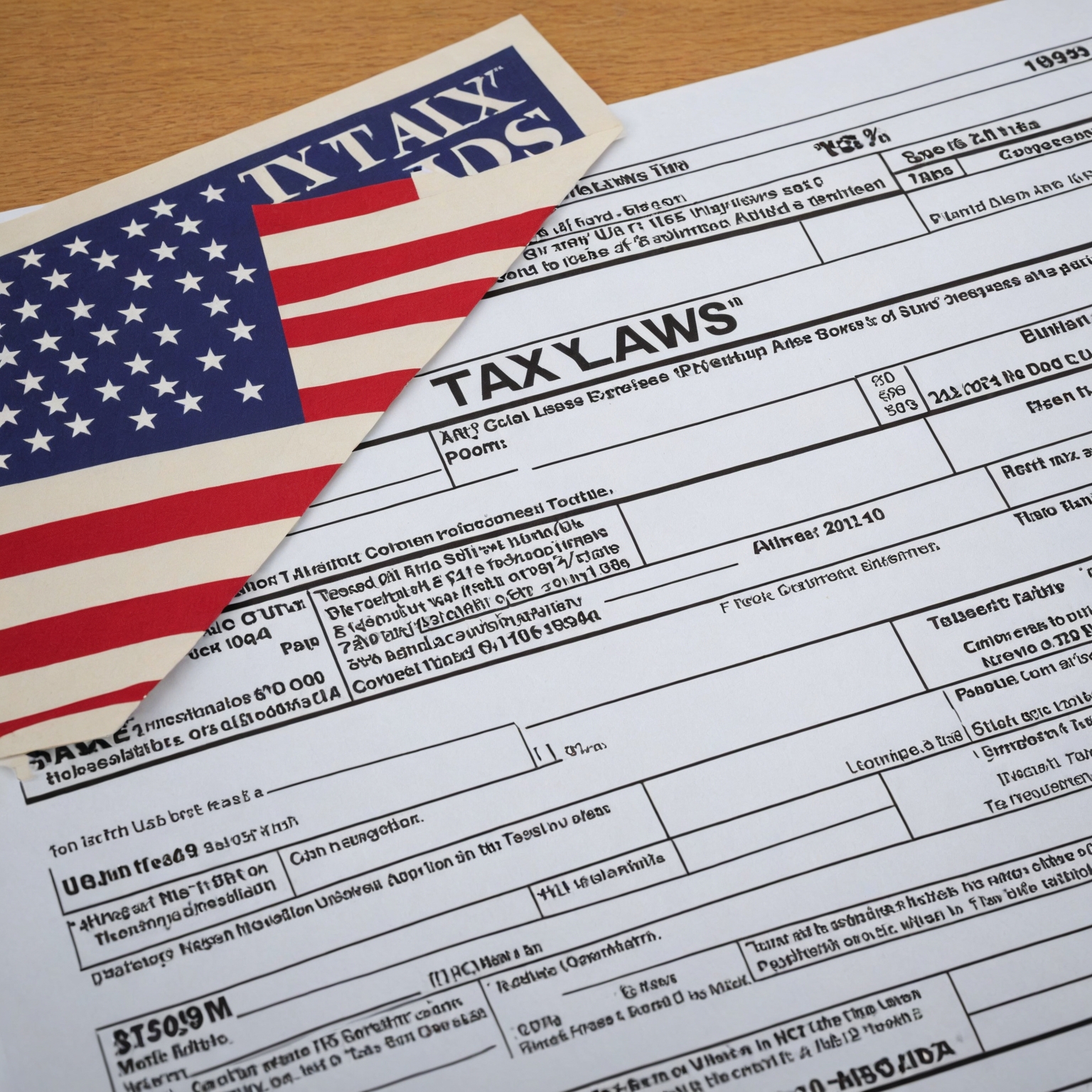
Tax laws in the United States are a complex and vital aspect of the country’s legal framework, affecting individuals, businesses, and government operations. Understanding these laws is crucial for compliance, financial planning, and ensuring that one’s rights and obligations are met. This article provides an in-depth look at the key elements of U.S. tax laws, their structure, and how they impact various entities.
The Structure of Taxation in the USA
The U.S. tax system is divided into three main levels: federal, state, and local. Each level has its own set of tax laws, regulations, and enforcement mechanisms.
- Federal Tax Laws: These are governed by the Internal Revenue Code (IRC), which is administered by the Internal Revenue Service (IRS). Federal taxes include income taxes, payroll taxes, corporate taxes, estate taxes, and excise taxes. Income tax is one of the most significant federal taxes, affecting both individuals and businesses. The federal income tax system is progressive, meaning that tax rates increase as income increases.
- State Tax Laws: Each state in the U.S. has its own tax system, which may include income taxes, sales taxes, property taxes, and excise taxes. Unlike the federal system, not all states impose an income tax. For example, states like Florida and Texas do not have a state income tax, while others like California have higher income tax rates.
- Local Tax Laws: Local governments, including cities and counties, may also impose taxes. These can include property taxes, sales taxes, and local income taxes. Local tax laws can vary significantly depending on the jurisdiction.
Federal Income Tax
Federal income tax is the primary source of revenue for the U.S. government. It applies to individuals, corporations, and other entities, with the tax rate depending on the taxpayer’s income level. The federal income tax system is based on a progressive tax rate structure, with higher rates applied to higher income brackets.
Individuals are required to file annual tax returns with the IRS, reporting their income and calculating the amount of tax owed. The IRS provides various deductions, credits, and exemptions that can reduce the amount of taxable income, such as the standard deduction, itemized deductions, and tax credits for education, energy efficiency, and child care.
Corporate Tax
Corporate tax is levied on the profits of businesses operating in the U.S. The Tax Cuts and Jobs Act (TCJA) of 2017 significantly reformed corporate tax laws, reducing the corporate tax rate from 35% to 21%. This flat rate applies to all corporate income, regardless of the amount.
In addition to the federal corporate tax, many states impose their own corporate income taxes, which can vary widely. Some states, like Nevada and Wyoming, do not impose a corporate income tax, making them attractive to businesses seeking to minimize their tax liability.
Payroll Taxes
Payroll taxes are another critical component of the U.S. tax system. These taxes are used to fund Social Security and Medicare programs and are typically split between employers and employees. The Federal Insurance Contributions Act (FICA) governs these taxes, with employers required to withhold a portion of employees’ wages for Social Security and Medicare contributions.
Self-employed individuals are also subject to payroll taxes under the Self-Employment Contributions Act (SECA), which requires them to pay both the employer and employee portions of the tax.

State and Local Taxes
State and local taxes add another layer of complexity to the U.S. tax system. While some states have no income tax, they may impose higher sales or property taxes to generate revenue. Sales tax is a consumption tax imposed on the sale of goods and services, with rates varying by state and locality.
Property taxes are typically levied by local governments and are based on the assessed value of real estate property. These taxes fund local services such as public schools, police, and infrastructure.
Tax Compliance and Enforcement
The IRS is the primary agency responsible for enforcing federal tax laws and ensuring compliance. Taxpayers are required to file accurate returns and pay their taxes on time. Failure to comply with tax laws can result in penalties, interest, and in severe cases, criminal prosecution.
Tax audits are a common enforcement tool used by the IRS to verify the accuracy of tax returns. Audits can be triggered by discrepancies in reported income, deductions, or credits, and may result in additional taxes owed or refunds.
Tax Planning and Strategies
Effective tax planning is essential for individuals and businesses to minimize their tax liability and ensure compliance with tax laws. Strategies may include taking advantage of tax deductions, credits, and exemptions, deferring income to future tax years, and investing in tax-advantaged accounts such as 401(k)s and IRAs.
For businesses, tax planning may involve structuring the business to take advantage of lower tax rates, maximizing depreciation deductions, and utilizing tax credits for research and development, energy efficiency, and hiring.
Conclusion
The U.S. tax system is intricate and multi-faceted, with a wide range of taxes imposed at the federal, state, and local levels. Understanding these tax laws is crucial for individuals and businesses to ensure compliance and optimize their tax situation. By staying informed about changes in tax laws and employing effective tax planning strategies, taxpayers can navigate the complexities of the U.S. tax system and achieve their financial goals.
FAQS
1. What are the primary types of taxes in the USA?
The main types of taxes in the USA include federal income tax, state income tax, corporate tax, payroll tax, and local property and sales taxes.
2. How do federal and state taxes differ in the USA?
Federal taxes apply nationwide and are governed by the IRS, while state taxes vary by state, with each state setting its own tax laws, rates, and regulations.
3. What is the role of the IRS in the U.S. tax system?
The IRS enforces federal tax laws, collects taxes, and ensures compliance through audits, penalties, and other measures.






